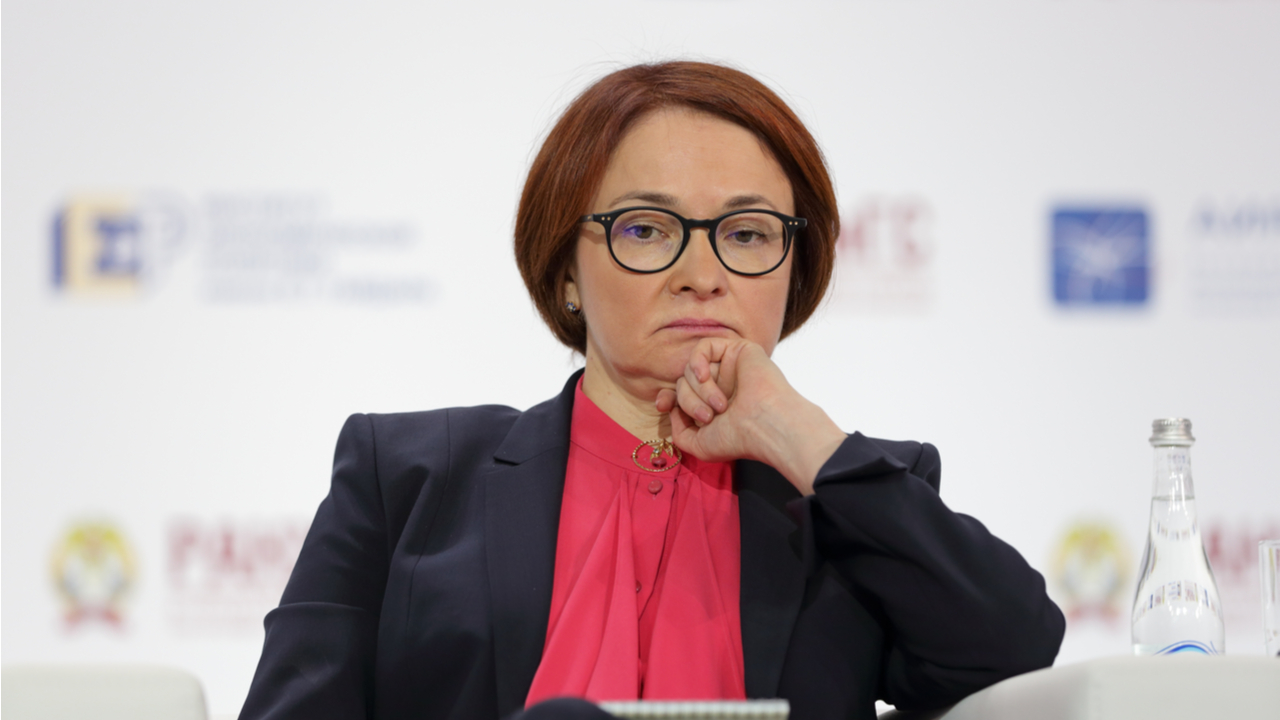
The Central Bank of Russia has reaffirmed its opposition to cryptocurrency investments citing the volatility of the digital assets as a key motive for its conservative stance. Governor Elvira Nabiullina has recently indicated that the regulator has the means to restrict them.
Nabiullina Insists Bank of Russia Can Limit Investments in Crypto Assets
Russia’s monetary authority does not welcome investments of Russian citizens in cryptocurrencies, the head of the Central Bank of Russia (CBR), Elvira Nabiullina, said during an online press conference this week. She highlighted their volatility and potential use in criminal activity as major reasons for the regulator’s position.
The governor also noted Bank of Russia’s stance that the Russian financial infrastructure should not be employed to facilitate cryptocurrency transactions. She stressed that the regulator is capable of implementing restrictions and reiterated the bank’s skepticism towards these assets. Quoted by the business news portal RBC, the chair of the Russian central bank elaborated:
Cryptocurrencies carry great risks for retail investors due to high volatility and use in illegal activities, so we cannot welcome investments in such assets.
Nabiullina’s statements come after media reports revealed that Russian authorities are now holding discussions to choose between two very different approaches to the regulation of cryptocurrencies and related activities. While the Bank of Russia is seeking to prohibit crypto purchases, the State Duma is developing rules for coin mining and exchange. These will legalize cryptocurrencies despite the CBR’s opposition to their free circulation including their use in payments.
Earlier this week, Reuters quoted sources close to the CBR who indicated that the monetary authority is in talks with market players over a possible ban on the acquisition of crypto assets by Russian investors in the future. One of them unveiled that the central bank’s current position is one of “complete rejection” of cryptocurrencies. Industry experts have warned that such a move would push crypto investors underground and prevent the state from collecting taxes.
However, according to the head of the parliamentary Financial Market Committee, Anatoly Aksakov, lawmakers are also considering the legalization of crypto trading which would allow the taxation of related profits and incomes. Aksakov remarked that the State Duma has already adopted on first reading a draft law to tax crypto transactions in the Russian Federation. The legislation, which recognizes digital currencies like bitcoin as property for tax purposes, was submitted to the house last December.
Do you think Bank of Russia will convince other authorities to support a ban on cryptocurrency investments? Let us know in the comments section below.
from Bitcoin News https://ift.tt/3q7Z3b3
Comments
Post a Comment